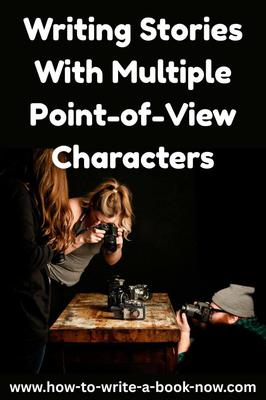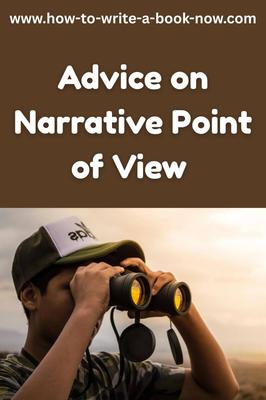Worldbuilding
by Twilight Dragon
(Adelaide, South Australia)
Question: My friend and I are currently world-building for our collaborative piece, but we are having difficulties with the man-made geography. We have the agricultural and mining hubs and the capital city down, and a decent forest, but now we still have half a country to fill and little idea of what to do with it.
What aspects are we missing?
Answer: Don't feel you need to fill a country completely before you write your story.
While knowing a lot about your a story world can open up story possibilities and add a feel of authenticity, it is far more important to focus on the characters and what is meaningful to them -- their growth, and the obstacles and opportunities they will actually experience during the course of the story. Unless your characters are actually going to visit every part of the story world (which I don't recommend because it sounds pointlessly dull) then you don't need to fully design it.
Presumably, your main character doesn't need to know every aspect of the world's geography. Some parts he/she will be quite familiar with. Other bits he may have a rough understanding of. And there may be areas of which he knows nothing. During the course of the story, the reader and the main character together may come to discover a little more, but not everything. You may find that you need to alter your story world to suit the story that emerges in the writing. Also, a little remaining mystery is fine. It might even leave the door open for a sequel.
You may need to know some things as writers which the main character doesn't, so you understand why things happen the way they do. But not even J.R.R. Tolkein, the patron saint of world-builders, knew everything about Middle Earth. The east was a big blank because it was not important to the stories.
If you feel you need to flesh things out, to make the world seem more solid, you may want to consider culture as well as geography (acknowledging that the two are often related), especially the culture your main character is immersed in.
Anthropologists, for example, have identified a number of "human universals" - aspects that are part of every culture, though they differ from culture to culture. (See https://en.wikipedia.org/wiki/Human_Universals)
Again, don't feel you need to address every aspect. Focus on the ones that will matter in your story, the ones that will affect the main character's journey.
Comments for Worldbuilding
|
||
|
||
|
||
Creating a world
Question: My problem is that I am not sure how to introduce my world and it's various ways of life. I don't want to be too wordy or long but there are some things that the reader should know. Should I just describe everything in the beginning or unfold it bit by bit? If I should unfold it, how?
Answer: Definitely bit by bit. You're not writing a history or geography textbook. You're writing a novel. Even J.R.R. Tolkein, probably the greatest pioneer of worldbuilding, knew enough to put most of the information about Middle Earth into appendices.
I would also suggest you allow the information to unfold naturally, as it's needed and as the reader follows the characters along their journey.
For instance, the lifestyles of the people should be apparent from the characters' activities. If you have a scene that takes place in a castle, you can "set the stage" with a few details about the building and its occupants so that the reader can picture them better. If the hero sharpens his prized sword before battle, you can give a couple of details that explain why the sword is special. But try not to go on for more than a paragraph or two.
Sometimes you can give exposition through dialogue. For instance, you can have a character who doesn't know much about the world (maybe because he's foreign or uneducated) be told some important facts from someone more learned, or read them in a document, etc. You can create suspense by having him discover certain facts about the world's history slowly over the course of the story.
Bear in mind that even dialogue will slow the story, so you might want to intersperse expository conversations among action scenes.
I'd also suggest you take a look at some of your favorite fantasy or science fiction books. Notice how other writers introduce facts about the world until they have built up a rich portrait.
(But stay away from Moby Dick. It's a great book, but Melville broke all the rules by inserting an encyclopedia on whaling part-way through.)
Worldbuilding
by Audrey
(Singapore)
Question: I do not really understand the religion part of worldbuilding. How do I incorporate religion into my races? Like, does religion only include the rituals they do and their beliefs? Thank you!
Answer: I may get pushback from people on this, but here's how I see religion in stories...
Religion in the real world is all about how people make or find meaning in their life. All human beings instinctively make meaning, and collaborate with others in making meaning.
Some aspects of religion and meaning-making include...
* Community involvement (hence, religions are often about what people do together including mutual aid).
* A shared understanding of the world (i.e. why do good/bad things happen, what rules or practices will lead to happiness, what things should be considered good or evil?). This is where morality comes from.
* A shared sense of history (i.e. stories of how the world came to be, celebrating events of the past).
* A shared identity (i.e. this is the unique story of our people. These are the things that set us apart from others.)
* Purging of anxiety, guilt, other negative emotions (i.e. emotionally cathartic services, ritual sacrifices, scapegoating, prayer, confession, meditation). In other words, religion helps us feel better about ourselves.
* Predicting the future. During hard times, which always come, it's comforting to believe there is a plan, that the future will be better, or that we can do something to make it better (by performing the right acts).
* A sense of being part of something bigger than ourselves such as a community or a universe that tells us a) we are important but b) not responsible for everything that happens.
Human beings always do the best to incorporate truth into their understanding of the world. The problem is that we don't know everything and our lack of knowledge creates anxiety. We hate not knowing things. So we make up explanations for things based on inadequate information, because even a false explanation feels better than no explanation. (The less scientific knowledge a community has, the more false explanations arise.)
Unfortunately, false explanations often turn into dogma. The emotional benefit of having an explanation, even a false explanation, can be threatened by doubt, even if that doubt is backed by strong proof. For this reason, all religions encourage people to have faith in the explanations and not question them even when new information comes along.
Different groups of people coming up with different explanations, rituals, histories, practices, rules, etc. leads to different religions.
Of course, religion is also often used by the powerful to maintain power, by convincing everyone that they should follow the rules, even when those rules clearly favour the powerful more than the majority. (E.g. "God told me you should all build me a palace.") Some religions, such as cults, have leaders who are far more exploitative than others.
At the same time, meaning based on evidence and reason also play a part in all human societies.
If you are creating a fictional world, you can have a more secular world where meaning is mostly based on scientific evidence and reason.
Or you can have a more faith-based world where the explanations are not so evidence-based and leaders work hard to convince people to have faith and reject contradictory evidence.
In some stories, religion is not that important. However, if religion is to play a big part in your world, you might ask yourself how people derive meaning in that world. How much of their understanding is based on mythology and superstition vs. observation of evidence and experience. What are their unique mythologies? What sort of rituals do they use to ease their emotional stress? What rules are they supposed to follow? How much is religion the tool of the powerful?
Also, you might consider how strict the rules are. Are they so rigid that people suffer greatly from following them? Or are they more flexible and open to interpretation? Are there punishments for breaking the rules? How easily can one get forgiveness?
Finally, if you have a conflict between two peoples, that might lead to a conflict between religions -- different explanations for the world, different rules, different traditions, etc.
Having different religions implies that at least one of them is wrong about some things, and that insight threatens faith. Sometimes the only way people feel they can protect their faith is to stamp out the other religion and its followers.
This makes for a lot of drama that can add to a story.
Best of luck.
- Home
- Writing Questions
- Worldbuilding
















